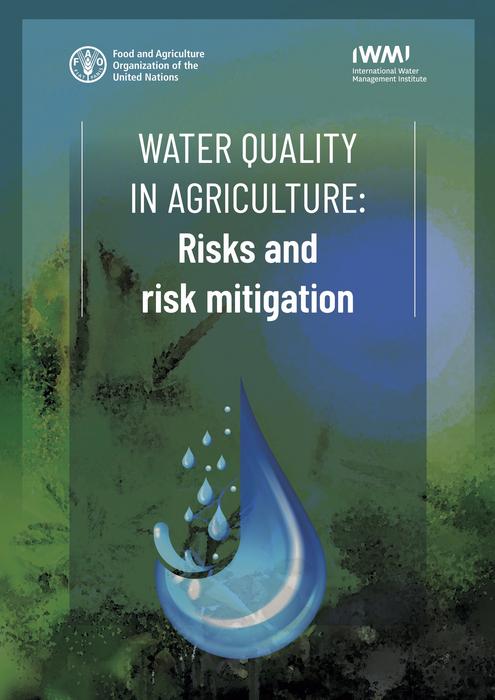The Food and Agriculture Organization (FAO) and the International Water Management Institute (IWMI) co-launched “Water Quality in Agriculture: Risks and Risk Mitigation” at the Rome Water Dialogue on October 5, 2023. This landmark publication, by a team of international experts, offers a comprehensive look at risk assessment and mitigation, with an emphasis on technical solutions and good agricultural practices. The guidelines cover crop and livestock farming, as well as fish farming or aquaculture.

Credit: FAO and IWMI
The Food and Agriculture Organization (FAO) and the International Water Management Institute (IWMI) co-launched “Water Quality in Agriculture: Risks and Risk Mitigation” at the Rome Water Dialogue on October 5, 2023. This landmark publication, by a team of international experts, offers a comprehensive look at risk assessment and mitigation, with an emphasis on technical solutions and good agricultural practices. The guidelines cover crop and livestock farming, as well as fish farming or aquaculture.
Combining and updating previous FAO works on water quality, salinity and wastewater reuse, the 2023 release is a compendium guiding evaluation and safe use of water for agriculture, with due attention to health and environmental protection.
The book gives an overview of key recommended water quality guidelines, with special emphasis on wastewater and brackish (salinity) water use, their risk assessment and mitigation options for pathogenic and chemical contaminants, including salinity-related threats.
National and subnational governmental authorities, farmers, project managers, extension officers, engineers, as well as academics will find the publication an invaluable resource to assess water quality information and identify potential problems and solutions related to water quality from farm to the basin.
To launch the publication, Dr. Sasha Koo-Oshima, the FAO’s Deputy Director, Land and Water Division, remarked, “The 2030 Agenda for Sustainable Development acknowledges the significance of water quality, and policy makers have identified water reuse as key to a more sustainable future. This is particularly important for many low- and middle-income countries where wastewater treatment is not keeping pace with urbanization. Growing urbanization is increasing the demand for water and producing more wastewater. To date, half of all domestic wastewater is untreated, added by large volumes of untreated agricultural drainage water discharged into the environment. FAO’s ‘One Water One Health’ initiative addresses an integral concept of water as reflected in the Sustainable Development Goal 6 Ensure availability and sustainable management of water and sanitation for all. This includes access to safe, reliable and sustainable water – including irrigation water – and water used in food production and processing , adequate water management practices (including re-use), water efficiency and the protection of essential services by aquatic ecosystems, under the umbrella of integrated water resources management. It is within this context that this new publication emerges as a pivotal keystone, providing not just insights but actionable pathways, marking a significant step towards sustainable integration of agriculture, water, and health.”
“This remarkable work comes at a time when the world is confronting key challenges such as feeding growing populations, securing the livelihoods of farming communities, and protecting the environment,” said Dr. Rachael McDonnell, Deputy Director General of Research and Development at IWMI. “We are at a crossroads in how we manage our water resources with ramifications for human and ecosystem health, social issues, and economic growth. This publication by FAO and IWMI offers actionable guidance to address the challenges of water pollution and soil salinization in low- and middle-income countries. My congratulations to the editors and contributors for this timely work to educate and promote sustainability in how we tackle the challenges of agriculture and water scarcity.”
The first detailed look at risk assessment and mitigation in 30 years, “Water Quality in Agriculture: Risks and Risk Mitigation” draws among others on three previous works: “Water Quality for Agriculture” (Ayers & Westcot 1976, 1985), “Wastewater Treatment and Use in Agriculture” (Pescod, 1992), and “Water Desalination for Agriculture Purposes” (Beltran & Koo-Oshima, 2006). It is complemented by two other recent FAO guidelines for Brackish Water Use and Antimicrobial Resistance.
Download the publication: Water quality in agriculture: risks and risk mitigation
DOI
10.4060/cc7340en




